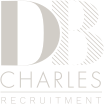Creating a positive candidate experience is critical to the success of any recruitment agency, but with only 39 percent of candidates reporting a positive experience, clearly, the hiring process of many recruiters needs an overhaul.
In this guide, we’re going to take a look at common areas where many recruiters fall short, how the process can be improved and what a positive candidate journey should look like.
What Causes a Bad Candidate Experience?
As a recruiter, a bad candidate experience is not only bad for business but on a human level, it’s also bad form, unprofessional and disrespectful to a candidate who has put time and effort into applying for a role. If you read the reviews of a number of recruitment sites, you’ll see that cutting corners when it comes to the candidate experience is a common complaint, and this can cause reputational damage both to the recruiter and the employer. But what are the main causes of a bad candidate experience?
- A lack of accurate information in the ‘attract phase’
One of the most common gripes candidates have is a lack of accurate or relevant information about a prospective employer and the role in the initial ‘attract phase’. Candidates want information that reflects the work they’ll be doing and the environment they’ll be working in so they can make informed decisions about whether to apply for the role, but all too often this is not provided in the detail they need. - Vague job descriptions
Another issue candidates commonly have is the vague job descriptions they are given that have very few details about the role, and in many cases, contain little or no information about salary or benefits. This is clearly very pertinent information. - Unclear application instructions
Candidates also want to know more about exactly what the application process will involve. Will simply being put forward by the recruitment agency be enough or will they have to complete a long application form? They also want more information about the status of their application once it has been submitted. - Interview preparation
Many candidates want clearer information from recruiters about exactly what the interview process will involve and whether a second interview or skills test will take place. - Lack of feedback
Whether it comes from the recruitment agency or the employer directly, candidates are often left frustrated by the lack of feedback about how they performed. - Poor communication throughout
More generally, one of the key causes of a bad candidate journey is the lack of proper contact from the recruiter throughout the process. That means receiving no updates; no confirmation emails; not being unable to contact the recruiter, and not being informed when the position has been filled.
How Can Improvements Be Made?
The number of interactions recruiters have with candidates before they even introduce a specific job opportunity has an important part to play in perfecting the candidate journey experience. Failing to engage effectively with both passive and active candidates can close the door on opportunities before they have even been raised.
All too often, recruiters think they are providing the perfect service, but:
- How do they know this?
- How often do they check this?
- When was the last time they made an improvement?
In reality, in the current economic and political climate, no service provider should ever settle on one particular process without making regular improvements. Recruiters constantly need to analyse what is working and what needs to change. With such a wide range of technology at their disposal, recruiters should be open to change and offer a flexible range of services to accommodate every candidate.
What Does a Positive Candidate Journey Experience Look Like?
What might it look like if you put a candidate journey in place which puts the need of the candidates, and not the recruiters, first?
- Initial meeting – A typical candidate journey might involve making or receiving a call from an agency and the candidate being invited in for an informal meeting to discuss potential roles. However, with work commitments, remote locations and busy schedules, many candidates cannot drop everything to travel to a recruitment agency. And nor should they have to. Instead, agencies should consider how they can be more flexible, i.e. can they use Skype, FaceTime or even travel to meet the candidate themselves?
- Honesty – How often does a candidate work with a recruitment agency that they feel is being completely honest? Sadly, not very often. Some agencies are guilty of giving false hope to candidates simply to keep them on their books. What if an agency that didn’t think it could help a candidate recommended other agencies that could? What a breath of fresh air that would be. After all, you’re meant to be putting the candidates first.
- Aftercare – What if you put a candidate forward for a role that they don’t get, what happens then? It’s important agencies take the time to stay in contact with candidates and actively search for roles rather than waiting for suitable roles to come to them. Throughout the process, keeping the candidate informed, engaged and up to date with honest information is key.
How Can We Help?
Not happy with your candidate journey experience? At DB Charles Recruitment, we offer a three-stage candidate journey that puts you first at every stage of the recruitment process. For more information, please get in touch today.












